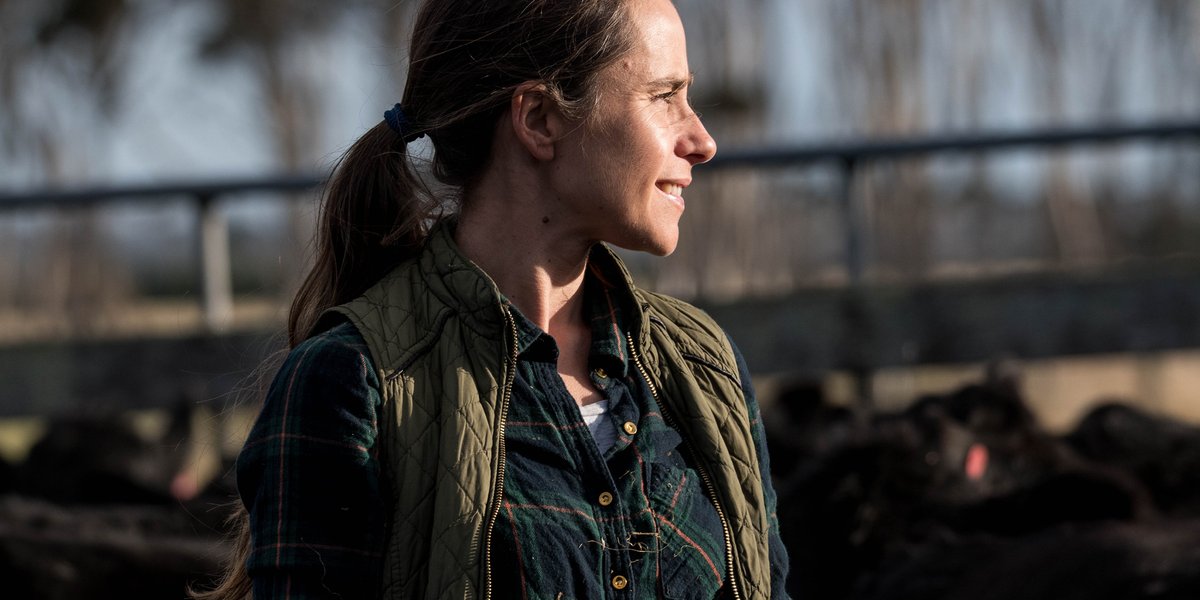Joan Evans
"Oh my sister and I, we cried and cried when we had to leave Linda. We cried for weeks. It should not be a forgotten place. It’s full of life.”
"[Linda] was a wonderful place to be a kid. We made our own games and our own fun. Our parents would say, ‘Go play outside,’ and ‘Watch the snakes,’ and that was it."
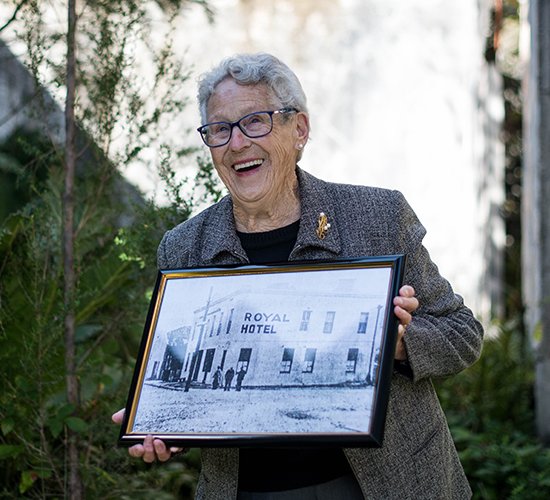
Joan Evans doesn’t like it when you call her childhood home a ghost town. “There aren’t any ghosts in Linda,” she says. “I should know.”
Linda is a curiosity to visitors to West Coast Tasmania, a town whose welcome and goodbye signs are barely a kilometre apart. Its curious ruin, the bones of the Royal Hotel, is so alluring you want to stop and explore. What is this place? What happened here?
Joan spent a good part of her childhood in the grand old hotel and in the community that surrounded it.
“It was a wonderful place to be a kid,” says Joan, who was born in Zeehan and moved to Linda when she was six weeks old, almost ninety years ago. “We made our own games and our own fun. We had the mountains. We had old tin with a grass bank. We’d slide on the tin or on a cardboard box. Our parents would say, ‘Go play outside,’ and ‘Watch the snakes,’ and that was it.”
Joan’s father worked in the North Lyell Mine. Then, when she was nine or ten her parents took over the lease of the Royal Hotel. Joan, who has the best laugh in Tasmania, talks about helping in the kitchen, serving in the dining room, washing the floors on her hands and knees, and polishing the brass.
The booming years in the Linda Valley had already passed by then, but it was a warm community. Everyone knew everyone. “It was sad because people were starting to leave, one by one. The school had closed. Some people passed away. Some moved to Queenstown, some to Hobart.”
Her family gave up its lease on the hotel and, when she was 14, Joan moved to Queenstown to take a job as a house cleaner. “Oh my sister and I, we cried and cried when we had to leave Linda. We cried for weeks. Then the hotel just sorta went downhill,” she says.
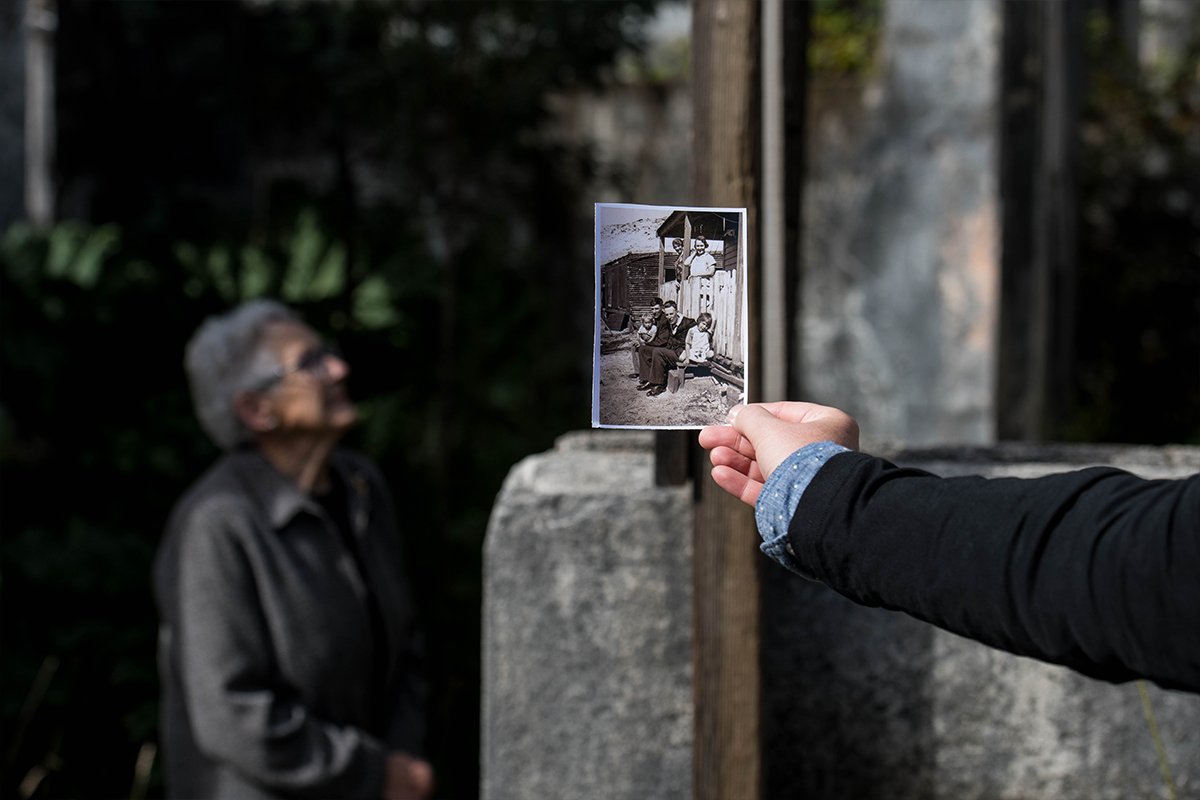
There was a lot for Joan to do in Queenstown when she wasn’t working. The mining economy kept the cinema open, plenty of dancing, and lots of activity on the streets.
“When the mine closed it changed a lot,” says Joan. “It was just us oldies and a few families. But people always smiled and had a good yak.”
And it’s changing again in Queenstown.
Mountain bikers have discovered the raw trails and beauty of the place.
And in 2012, to commemorate the centenary of the deadly North Mount Lyell Disaster, artists came together to launch The Unconformity, a festival that celebrates the history, the tragedies, the joys, the complications, and the unique culture of West Coast Tasmania.
The Unconformity has grown into one of the most fascinating arts festivals in Australia, and it has helped spread the word about West Coast Tasmania: its charisma and its potential. Drawn by this culture, by natural beauty, and by affordable homes, artists have joined mountain bikers.
“They’re selling houses here like hot cakes,” says Joan. “Every house comes up and it’s gone.”
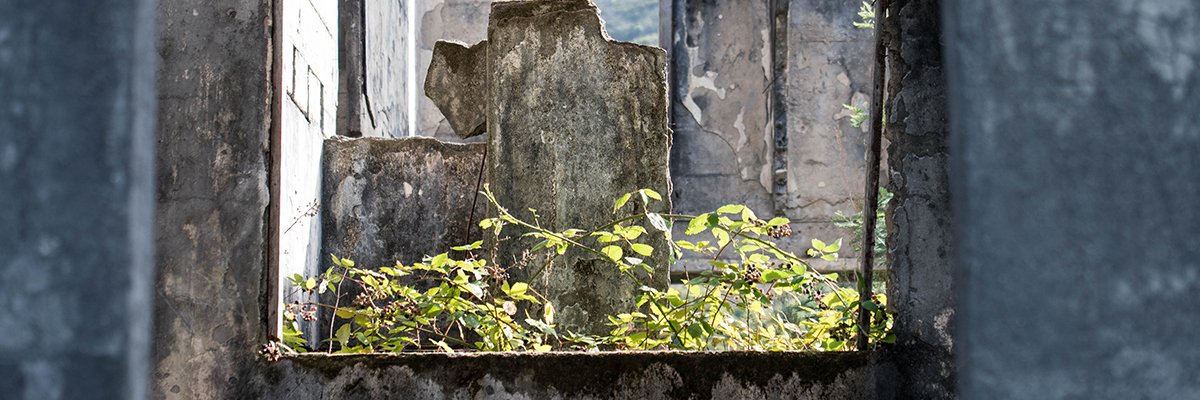
Joan Evans is one of 18 Tasmanians featured in our short film about the Tasmanian story. Joan’s scene was filmed at the remains of the Royal Hotel in Linda. The hotel is going through a re-invigoration with the new owners giving it a new life.
Read about more Tasmanians
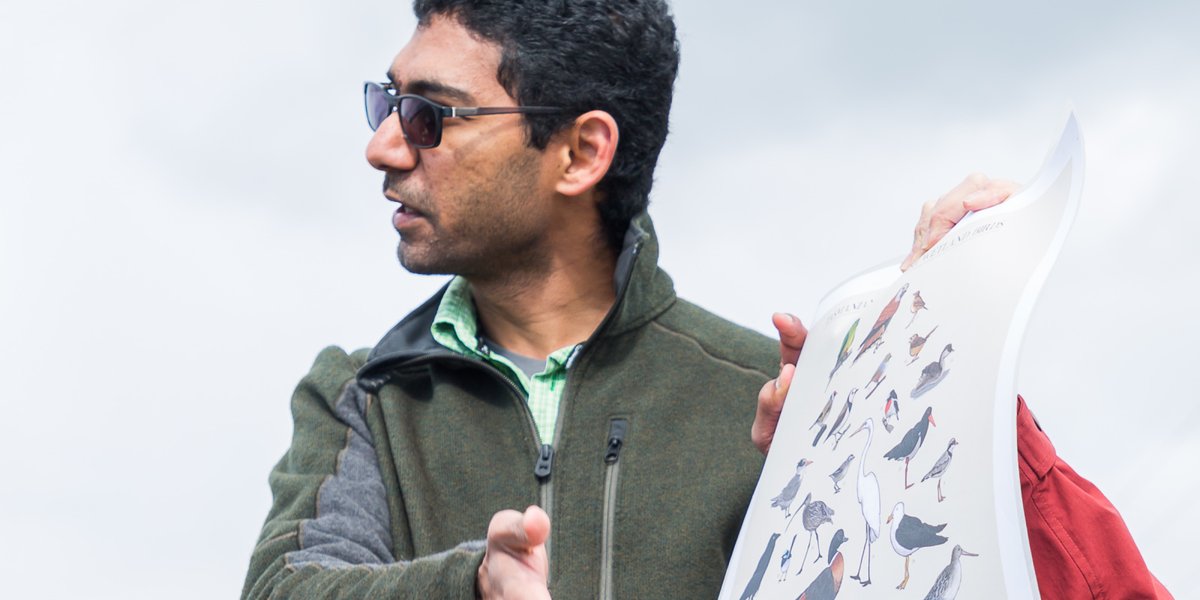
Vishnu Prahalad
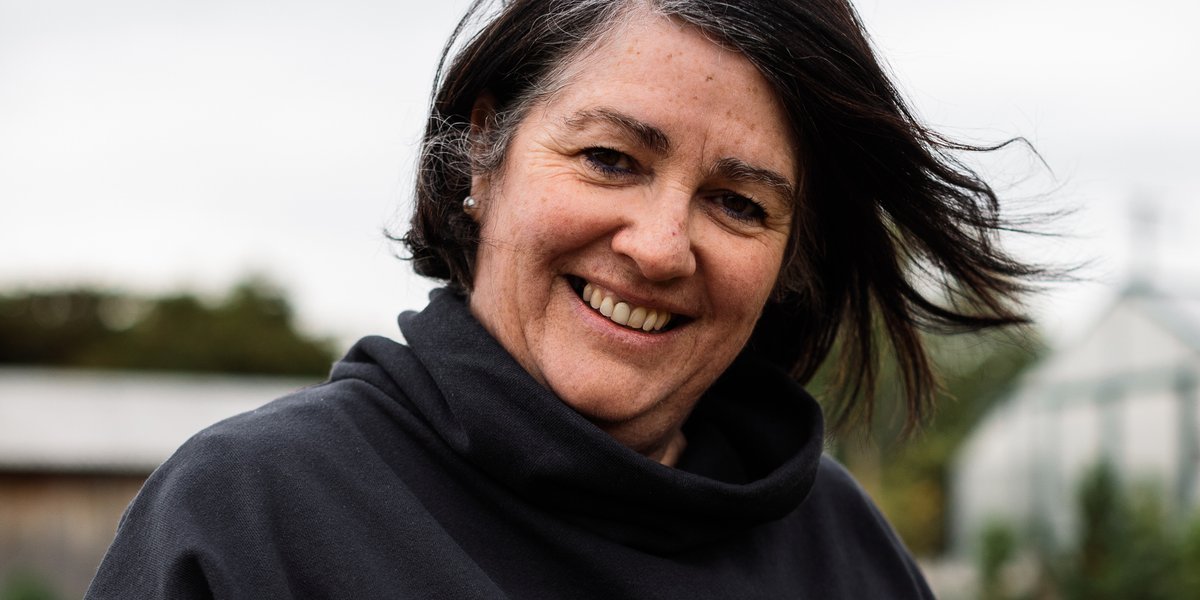
Leah Galvin
